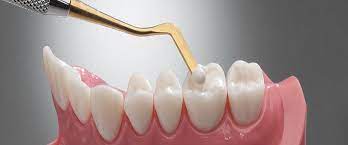The Lifespan of Dental Fillings: How to Extend Their Durability and Effectiveness

Fillings are a common restorative dental procedure used to restore teeth with cavities and minor damage. They are essential for maintaining tooth structure and preventing the progression of decay. Although dental fillings are resilient and effective, their longevity can be affected by a number of factors. Understanding how to prolong the life of dental fillings is crucial for optimal oral health and avoiding the need for replacements too soon. In this blog, we will discuss the average lifespan of dental fillings, the factors that affect their longevity, and practical tips for maximizing your dental restorations.
What Are Fillings in Teeth?
Dental fillings Spartanburg County are restorative materials used to repair teeth that have been damaged by decay or trauma. The procedure entails removing the decayed or compromised tooth structure, cleaning the affected area, and filling the cavity with an appropriate restorative material. Fillings restore the function and appearance of decayed teeth, preventing further decay and ensuring a healthy smile.
Types of Dental Restorations:
There are numerous types of dental fillings, each with its own distinct characteristics:
- Amalgam Fillings: Made from a combination of metals (including silver, tin, copper, and mercury), amalgam fillings have been used for decades due to their affordability and durability. However, they are less popular today due to environmental and aesthetic concerns.
- Composite Resin Fillings: Composites are tooth-colored fillings made from a mixture of plastic and glass particles. They blend seamlessly with natural teeth, making them a popular option for areas of the mouth that are visible. Composite restorations are less obvious and more aesthetically pleasing than amalgam restorations.
- Ceramic Fillings (Inlays/Onlays): Ceramic fillings, also known as porcelain inlays or onlays, are restorations that are custom-made to match the color and appearance of natural teeth. They are ideal for larger cavities and provide superior durability and aesthetics.
- Gold Fillings: Gold fillings are composed of gold alloy and are extraordinarily resilient. They are frequently utilized for the back teeth and areas subjected to intense biting forces. However, gold fillings are the most expensive and may not be as aesthetically pleasing as other options.
Aspects Influencing the Durability of Dental Fillings:
1. Type of Filling Material:
The filling’s durability can be affected by its composition. Gold and ceramic fillings are typically more resilient and resilient than amalgam and composite fillings. However, each material has its own advantages and disadvantages, and the optimal choice will depend on the location of the tooth, the extent of the restoration required, and the patient’s preferences.
2. Size and Location of the Cavity:
The size and location of the cavity play a crucial role in determining the longevity of the dental filling. Large or deep cavities can compromise the structural integrity of the tooth, making it more susceptible to additional damage and fractures. Fillings in areas of the mouth that experience significant chewing forces, such as the molars, may experience greater wear and tear over time.
3. Oral Hygiene Habits:
Consistent and effective oral hygiene practices are required to preserve the health and longevity of dental fillings. Plaque buildup and the recurrence of decay around the filling can be avoided through routine brushing, flossing, and use of antibacterial mouthwash.
4. Diet and Eating Habits:
Dietary decisions can affect the durability of dental fillings. Frequent consumption of sugary or acidic foods and beverages can increase the risk of tooth decay and compromise filling integrity. Additionally, avoiding excessive biting forces, such as chewing on ice or hard objects, can help prevent damage to the filling.
5. Teeth Grinding (Bruxism):
Bruxism, or teeth grinding, can place excessive pressure on dental fillings, resulting in premature wear or fractures. Your dentist may recommend a nightguard to protect both your natural teeth and dental restorations if you grind your teeth.
6. Routine Dental Exams:
Routine dental exams are essential for monitoring the condition of dental fillings and detecting any signs of wear, deterioration, or recurrent decay. Detection at an early stage permits prompt intervention and may prevent the need for more extensive dental care in the future.
Tips for Prolonging the Life of Dental Fillings:
1. Maintain Excellent Oral Hygiene:
Brush your teeth with fluoride toothpaste at least twice per day and floss daily to remove plaque and food particles from between your teeth and around the filling.
2. Select a Well-Rounded Diet:
Limit your consumption of sugary and acidic foods and beverages, as they can contribute to tooth decay and erode filling material. Opt instead for a diet rich in fruits, vegetables, and dairy products that promotes oral health.
3. Avoid Biting Hard Objects:
Avoid using your teeth as tools to open packages or to bite into hard objects such as ice or pens, as this can cause damage to dental fillings and natural tooth structure.
4. Wear a Nightguard (if Applicable):
If you have bruxism or clench your teeth at night, protect your teeth and dental restorations from excessive forces by wearing a custom-fitted nightguard.
5. Schedule Routine Dental Exams:
Visit your dentist every six months or as directed for routine exams and cleanings. Regular dental examinations enable your dentist to monitor the condition of your fillings and promptly address any issues.
6. Contact Your Dentist Promptly:
If you experience dental pain or notice changes in your dental fillings, contact your dentist as soon as possible for an evaluation. Intervention at an early stage can prevent minor issues from escalating into more serious ones.
Conclusion:
Fillings are essential for maintaining the health and functionality of your teeth. You can extend the lifespan of your dental fillings and maintain a healthy smile for many years by understanding the factors that influence their durability and implementing proactive oral hygiene practices. Invest in the durability of your dental restorations and enjoy the benefits of a lifetime of a strong and radiant smile, find more info about Ellett Family Dentistry.






